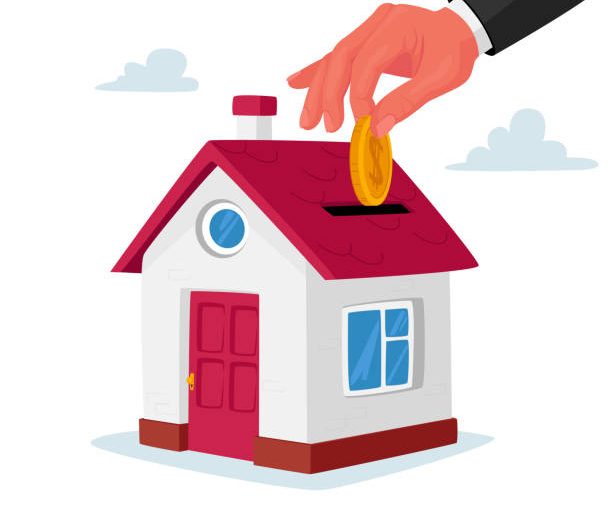Learn how to build equity in your property to increase the value of your home and improve your chances of getting approved for a mortgage or refinancing.
Home equity is the estimated market value of a home, minus any outstanding mortgages or other debts against it. It’s one of the most important measures of your wealth and can be a critical factor in getting a loan or buying a new property. You can also use it as collateral for borrowing money.
What do you need to qualify for equity in an appraisal?
In the United States, three conditions must you must meet for a home to qualify for equity for Appraisal:
- You must own the home at least one year of the five years preceding the date of application.
- It must be a single-family dwelling on a lot no smaller than 1/4 acre, situated on land zoned for residential or commercial use
In other words, if you want your home appraised for mortgage purposes, then you need to make sure you’ve lived there for more than one year out of every five years. If you only lived there for one year out of five, it is unlikely that any bank or lender will accept the Appraisal. You need to build equity in your home before taking an appraisal if you want your home to get appraised as part of a mortgage transaction.
How to build equity in your home for an appraisal?
When you’re trying to build equity for Appraisal, it’s important to remember the following tips that will help you speed up when building equity.
1. Pay Your Mortgage On Time And In Full
It’s no secret that one of the best ways to increase the equity in your home is to pay your mortgage on time and in full. But many homeowners don’t realize that even a small amount of late fees can add up over time and eat away at their equity. By avoiding late fees altogether, you’ll be able to build up equity more quickly and have a stronger case for a higher appraisal when it comes time to sell.
2. Make Improvements To Your Home To Increase Its Value
By adding new features or renovating outdated ones, you can increase your home’s value and make it more appealing to buyers. If you’re looking to get a higher appraisal on your home, making some key upgrades is a great way to do it. Some of the most popular improvements include updating the kitchen or bathroom, adding a deck or patio, and installing new flooring or windows.
Of course, not every improvement will be worth the same equity gain. So before starting any major renovations, be sure to do your research and figure out which ones will give you the most significant return on investment. Spending less on equity-building improvements is a smart way to maximize your equity for Appraisal.
3. Keep Up With Regular Maintenance
If you wonder how to build equity in your home for an appraisal, you need to make sure your home gets proper maintenance. By keeping up with regular maintenance, you tell potential buyers that the home has been well-cared for and is worth more money. Proper maintenance can also help boost your home’s appraisal value when it comes to taking a loan.
For instance, repaint the exterior of your home to freshen it up. You can also change landscaping or build a pool to increase home value. Additionally, regular maintenance will help you keep your home’s resale value up. If potential buyers see that the house has been well-kept, they will be more likely to offer a higher price for it.
4. Pay Extra Payment Frequently
By paying more than the minimum each month, you will reduce the amount of interest you owe and shorten the length of your loan. It means that you will own your home outright sooner, and it will be worth more when you do sell. Additionally, making extra payments can help you save money in the long run as you build equity for Appraisal.
You can even set up an automatic payment plan so that the money gets transferred from your bank account directly to your mortgage company each month. This way, you won’t have to worry about forgetting or being late with a payment.
5. Do more Research On Mortgage Loan
It’s always a good idea to avoid mortgage insurance because it increases your monthly payments. Mortgage insurance is Important if you put down less than 20% for your home. The lender will ensure the loan is in default and foreclosure when you have mortgage insurance. The premium for the homeowner is typically between 0.5-1% of the outstanding balance on loan per year, which means that over time this can add up to a significant amount more than what you would be paying each month without it.
An increment usually happens when people cannot make their payments and end up having their house foreclosed on them or lose it due to some other reason like bankruptcy or divorce proceedings. However, since mortgage insurance is essential when making a down payment under 20%, it can be hard to avoid.
6. Stay Up-To-Date On Property Taxes
One of the best ways to build equity for Appraisal is to keep up-to-date on property taxes and insurance payments. You may not think it will make a big difference, but if you’re late with these obligations for even one month, you could lose your tax break or insurance discount. And that means you could be paying more money than necessary.
For instance, if your property taxes are due at the end of March, but you wait until April 1st before making the payment because it slipped your mind or because life got busy. In the future, those same premiums will be more expensive since they weren’t paid on time. You don’t have to do this for every utility bill that comes into your home, but it is essential with these bills in particular because it can affect your equity for Appraisal.
7. Spend More Cash On Paying Your Mortgage
One smart strategy for building equity is to use the money you would have spent elsewhere on home improvements to reduce your mortgage payment instead. If you do this, you can put that extra cash into a savings account and accumulate interest over time.
Let’s say that every month you typically spend $500 on “household items,” such as cleaning supplies and groceries. If you start to put that money towards a savings account instead, then over a year, you will have accumulated $6,000 in cash that can help with future repairs or other expenses related to your home.
8. Ask for a Redo
If you are not completely satisfied with your Appraisal results, ask the appraiser if they would be willing to do it over for free or a reduced price. It may not always be successful, and you should prepare yourself if you expect them to say no. However, if your home is worth less than $300,000 and the appraiser used the same comparable market analysis as they did before, they will often redo their Appraisal without charging you for it. Even if they charge you, sometimes not charging as much is better than having your home appraised at the incorrect price.
How to Prepare Yourself for the Appraisal
After you understand on How to build equity in your home for an appraisal, it’s time to get ready for Appraisal using the following tips:
- Make sure that all of your paperwork is in order
- Organize your receipts and bills for the last two years to show how much you’ve spent on home repairs, renovations, etc.
- Get a copy of your recent property tax assessment.
- If you have any other properties, make sure they are up-to-date with taxes as well.
- Take pictures or videos of anything that needs fixing or replacing so that the appraiser can see it when they inspect the house before writing an estimate on its value.
- Clean out closets and remove clutter from rooms—this will give them more space to look around and check everything over thoroughly.
You may also want to take some time during this process to rearrange the furniture in every room if possible; make it seem like someone lives there! This way, they can get a better idea of what it looks like inside without going through each room individually.
So What Happen If The Appraisal Comes Low
If your FHA appraisal comes in low, you may have to put more money down to get the loan. Depending on how low the Appraisal comes in, you may also have to pay for a new appraisal. The lender and borrower can agree to split the additional costs for a new appraisal, or it will all fall on the borrower.
You may need to pull money together from another source to cover these costs if this happens. You could try to negotiate with the seller to bring the price down, or you could ask for a second appraisal. Furthermore, you may have to walk away from the deal if those don’t work.
Call ExcelAppraise today to see how much equity you have in your home
The above tip will help you build equity in your home for an appraisal. When it comes to building equity in your home, several factors can contribute to the value. For example, an appraiser will want to know about any renovations or changes you may have made and how often and for what reasons you rent out rooms within your house. To learn more about what affects your home’s equity, call us at 1-801-882-2292 or request a free quote today so that we can help you with this process!


Leave a Reply